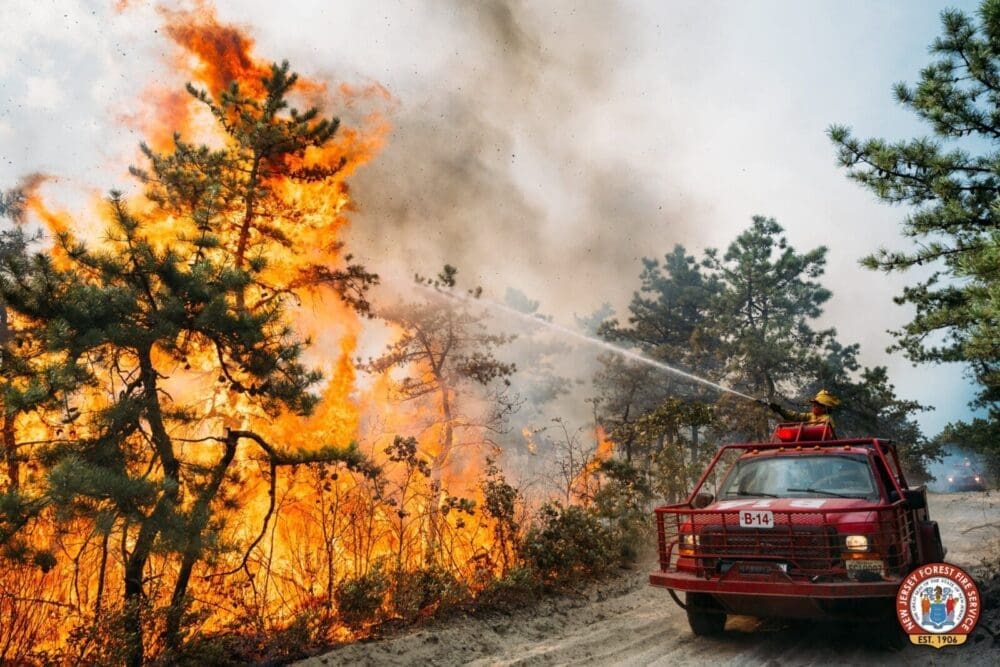State officials in New Jersey have imposed strict outdoor burning restrictions as worsening drought conditions fuel an unusual rise in wildfires. The New Jersey Forest Fire Service reported 107 fires last week alone, burning 183 acres.
Bill Donnelly, chief of the Forest Fire Service, said Monday that the fall fire season, which typically runs from mid-October to mid-November, began earlier this year due to prolonged warm, dry weather. So far, the state has recorded 917 wildfires in 2024, with four major blazes burning more than 100 acres each.
As of Monday, the state imposed Stage 3 fire restrictions — the highest level — in all 21 counties. Under these rules, open fires in or near wooded areas are banned unless they are contained in propane or gas-powered grills or stoves. Charcoal grills and devices such as tiki torches are also prohibited because of their high risk of starting wildfires.
WILDFIRE UPDATE: Microwave Wildfire, Rockaway Twp., Morris County
New Jersey Forest Fire Service crews remain on scene of a wildfire in the area of Jacobs Road in Rockaway Twp., Morris County.
SIZE & CONTAINMENT
🔥 77 acres
🔥 90% contained pic.twitter.com/3bVEGzRweZ — New Jersey Forest Fire Service (@njdepforestfire) October 22, 2024
Donnelly states that only propane-controlled fires are being allowed, emphasizing the risk posed by discarded cigarette butts or gasoline-powered lawn equipment.
New Jersey is also under a drought watch, asking residents and businesses to conserve water voluntarily. State Geologist Steve Domber warned that continued dry conditions could lead to mandatory water-use restrictions if a drought emergency is declared.
New Jersey’s rainfall has been below average for the past five months, with September being the third driest in recorded history, Domber said. The state has seen almost no rain in October, and forecasts show little chance of significant precipitation in the near future.
Officials are urging the public to be cautious, as dry conditions and dropping leaves create more fire hazards.
A recent wildfire in Rockaway burned 77 acres and was 70% contained as of Monday, threatening nearby structures but causing no evacuations. With warmer temperatures and potential winds in the forecast, officials are working to prevent further outbreaks.
The last drought watch in New Jersey occurred in 2022, but officials say that if the drought persists, the state may move to stricter drought warnings or an emergency.
The New Jersey Digest is a new jersey magazine that has chronicled daily life in the Garden State for over 10 years.
- Staffhttps://thedigestonline.com/author/thedigeststaff/
- Staffhttps://thedigestonline.com/author/thedigeststaff/
- Staffhttps://thedigestonline.com/author/thedigeststaff/
- Staffhttps://thedigestonline.com/author/thedigeststaff/


